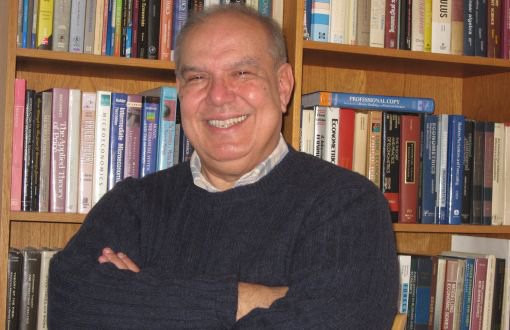
As hundreds of inmates in Turkey's prisons entered their 41st day of hunger strikes today, human rights activist Metin Bakkalcı emphasized the need to question the circumstances that have led them to resort to such an act.
"People are causing direct injury to themselves while we all bear witness to it. Hunger strikes are a process that directly concerns all of us. The bottom line is not about whether hunger strikes are right or wrong. It follows that such circumstances are in place that a person feels that all avenues to express him or herself have been shut and lets out a scream by inflicting injury on his or her body as a means of self-expression," Metin Bakkalcı, the head of the Human Rights Foundation of Turkey (TİHV,) told bianet.
Some 63 inmates first initiated the hunger strikes on Sept. 12 to protest the continued isolation of Abdullah Öcalan, the jailed leader of the Kurdistan Workers' Party (PKK,) and the obstacles that lie before the use of the Kurdish language in Turkey. Since then, hundreds more jumped on the bandwagon, with the number of inmates on hunger strike now soaring up to 615 prisoners across 58 jails in the country.
"Going from bad to worse"
"The environment where the field of self-expression has been limited to one's own body is also the [same] environment we are living in, too. We have been witnessing how the freedom of expression in this country has been narrowing down at an ever accelerating pace. In this regard, we all bear responsibility for the hunger strikes, starting with the government," Bakkalcı said.
Bakkalcı also noted that the prison population in Turkey has swelled from about 55,000 up to 125,000 since 2005, with human rights violations also gathering speed with each passing day.
"Operation 'Return to Life' on Dec. 19, 2000 played a major role in the increasing frequency of human rights violations," he said:
"[Authorities] then begun transferring [inmates] to F-type prisons which are based on isolation and de-humanization. As of today, the practice of isolation is in place in a great majority of the 377 prisons across Turkey. Isolation and solitary confinement are defined as acts of torture and ill-treatment in all international documents, and we have been witnessing torture and ill-treatment since 2000. This has only gone from bad to worse," he said.
Bakkalcı underlined the fact that the solitary confinement of Öcalan at a prison on İmralı Island in the Sea of Marmara had been going on for 13 years.
"Human rights cannot be negotiated. They have come about through a consensus built over thousands of years of human suffering throughout history, and universal human rights declarations are all based on these," he said.
"The essence of all these [declarations] include ensuring the right to self-expression at all levels. It is a point of consensus, beyond any negotiations. People reserve the right to express themselves in every language and in every environment," he added.
"The issue could be resolved within the hour"
The hunger strikes constitute an indication that the Kurdish issue has reached an intolerable level, Bakkalcı said.
"We are all going through a test of humanity. This scream is the reality of this country and concerns all of us. It is therefore impossible to accept this deep silence, this non-chalance," he added.
"Above all, this is the government's responsibility, as the government is the body which we authorize to take action. We charged the government with the task of upholding and improving human rights. It is thus committing a crime by not living up to this task," Bakkalcı said.
"I am not informed about what these people have been influenced by and to what extent. Their lawyers, however, are also lacking information, as [authorities] have not granted any opportunities to acquire sound knowledge about their situation," he said.
"The doors of communication must be opened wide immediately. This matter could be resolved within the hour. [People] went through a lot of suffering. I hope the state does not insist [on its position.] The government ought to clear the way [for a resolution to] this problem beyond any of their personal preferences," he added. (EKN)








.jpg)


